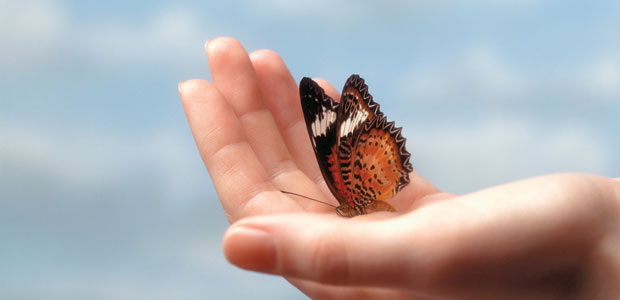Advertisement
Making a Difference
Severn Cullis-Suzuki’s brightest moment was probably at the Rio Earth Summit, where the then 12-year-old Severn delivered a powerful speech to the political representatives. However, her first environmental and social justice work began at an even younger age. When Severn was just six years old, she gathered a few friends from around the block to … Continued

Severn Cullis-Suzuki’s brightest moment was probably at the Rio Earth Summit, where the then 12-year-old Severn delivered a powerful speech to the political representatives. However, her first environmental and social justice work began at an even younger age.
When Severn was just six years old, she gathered a few friends from around the block to go on a parade carrying signs like “Save the Animals.” While such first attempts were perhaps frail, by age nine Severn and her friends started the Environmental Children’s Organization (ECO), a small group of children committed to learning and teaching other kids about environmental issues.
“I grew up with this love of nature because my family was always going camping, hiking, or fishing,” recalls Severn. “But from the dialogue around the table and from seeing it myself, it was obvious that there was a major problem with the environment.”
“We’d been fishing by the house since I was little and one day we had to stop because we started catching fish with tumours. Or we’d be driving along the highways in BC and see the clear-cuts and their consequences.”
Despite her family’s vocal stance on environmental issues, what made Severn passionate about environmental and social concerns was not pressure from her family. “My parents never lectured us, but we grew up with lots of good examples,” she says. “Had they told us what to do, we would likely have rebelled.”
A Budding Environmentalist
With ECO, Severn and her group started little projects like cleaning the beach, raising funds for worthwhile projects, and distributing a newsletter to other kids about what they were learning. And, of course, they also had fun.
“After a few years of these little projects we heard of the Rio Earth Summit,” recalls Severn. “It was going to be about the environment and development, so when we heard of this huge summit being held to talk about our future, we decided there should be some people our age there to represent us.”
The Environmental Youth Alliance took ECO under their wings, teaching the determined kids how to fundraise and write speeches. With great community support, including that of children’s performer Raffi, who accompanied the children to the conference, funds were raised for five ECO members to attend the conference.
At the conference they rented a booth and spread their message. On the day the group was to leave Rio, they were invited to give a speech, filling in for someone who had dropped out at the last minute. They had an hour to come up with something.
“So we forgot about our plane, got into a car and raced back to the summit, scribbling notes as we drove, deciding who should speak.” Eventually they combined all of their speeches into one powerful message, which Severn delivered.
The following year, Severn received the UN Environment Program’s Global 500 Award at a ceremony in Beijing, China.
Still Making a Difference
Today, Severn still holds the same fundamental beliefs she did when she was 12, but she no longer has an interest in speaking to politicians. “Real changes come from individuals like you and me,” she explains, “people standing up for what they believe in and pushing for change.”
The key to real change,” insists Severn, “is to make people more aware of the environment and of other people around the world, and understand how much effect [on the environment] we actually have as North Americans.”
One of these effects is the ubiquitous paper cup–a pet peeve of Severn’s. “We are trained to waste. There is no real reason for it; it is just something we do.” Other parts of the world effect the environment in similar ways. “In Japan, for example, five million chopsticks are thrown away each day,” says Severn. “That’s trees, forests, and ecosystems being destroyed each day for the sake of convenience.”
Bottling water is another thing that concerns Severn. “To me it represents comodification of a fundamental human right. By paying for water, we, in North America, are saying to all those people in the world who cannot afford to buy clean water that you have to have money to drink water. We should all have good clean water to drink. We’re in the habit of buying everything, but there are some things that we shouldn’t have to buy. Water is more expensive than oil now, and that’s a pretty scary reality.”
Now 24, Severn continues to play an active role in the environment, currently working on her master’s degree at the University of Victoria. She recently finished a fellowship with Action Canada, a national leadership development program, and a book project on young Canadians making great things happen in Canada. She hopes the book inspires young people and shows them that they have more power than they think.
The Skyfish Project, an internet-based think-tank spearheaded by Severn and her friends, contains a pledge called the Recognition of Responsibility, which can be accessed through www.skyfishproject.org/ror.html.
Severn’s advice to people of all ages who are concerned about the environment: “One of the most important things to realize is that no matter what age you are, you can make a difference. It may sound na?, but it’s absolutely true. We all make a difference whether we know it or not, it’s just that we need to decide what kind of a difference we want to make.”
Severn recalls hearing someone in the Yukon say: “You can change someone’s mind and they can change it back again, but if you change someone’s heart and can make them understand, that lasts forever.”




